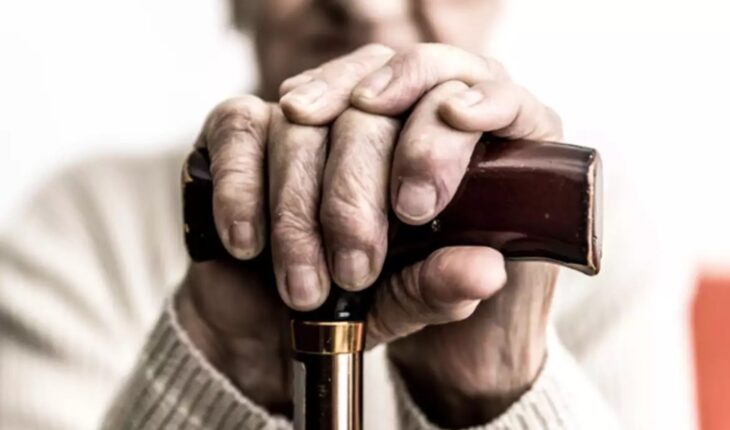Pensions, bills, insurance, retirement… These are only some of the things elderly people need to think about when it comes to their finances, and as you might have guessed, it can and most commonly is, quite overwhelming. This is why you probably want to help your elderly with properly managing their finances.
If so, you might now be wondering – are there some tips that I could use for helping an elderly person in my family manage their finances? Fortunately for all people looking for an answer to this question, this article might help. Let’s take a closer look at the list of tips you could use:
Contents
1. Work With Them And Respect Their Decisions

Source: Mum’s Money
The very first thing that you should do is to respect the decisions made by older adults, especially if they are still capable of managing their own finances. Never try to take over, instead, you should work with them and help them over some little things that they cannot do.
For example, you could execute details such as paying their bills each month. Doing this will help them realize you are not trying to take over, and they’ll most likely accept the help you are offering. Again, you should not try and take over since this can create a lot of problems for you.
However, it is quite necessary for you to take over and make a decision on behalf of the elderly person in your family, especially if they have a cognitive impairment or illnesses such as dementia. Nonetheless, even though they cannot manage their finances on their own anymore, they should still feel like they are in control.
You’ll need to ensure that everyone in your family is on the same page, which means that you’ll need to work with your other family members as well. They should understand that you are only looking out for the best interests of the older adult. According to Medisupps, you should ensure that their health is covered with the appropriate plan.
2. Locate Important Documents

Source: MissionBox
If there is one important thing you should do, it is to locate all of the important financial documents. This will allow you to easily locate them later on in the case the elderly person becomes incapacitated or of they are in an emergency. Once your older adults cannot take care of things themselves, you will protect their assets.
You might need to reassure your older family member that you will only use the information then they are unable to or in a case of an emergency, especially if they are very concerned about you using it before you have to. Hence, it might be best for you to know where the documents are, but leave them with your elderly. The important documents you should find are:
- Safe Deposit Boxes,
- Social Security Payments,
- The Car Title,
- A Reverse Mortgage or Home Mortgage,
- Pension Records,
- Insurance Policies,
- Wills,
- Bank And Brokerage Statements.
3. Get Access to Financial Accounts

Source: Certified Contractors Network
Keep in mind, in order for you to gain access to the back account of the elderly in your family, you’ll need specific paperwork and a lot of advance planning to do this. This means that you cannot access the bank account and funds without getting approved.
There are strict rules and regulations for accessing bank accounts in all financial institutions and banks. Sometimes, they might ask them to complete their own documents, even though you have the Power of Attorney. Hence, each bank might ask for different things.
In order for you to write checks or to withdraw money from the bank accounts of the older adult, you’ll need to be authorized. Additionally, for accessing the safe deposit box, your older adult will need to choose and authorize a ‘deputy’ or an ‘agent’.
Important: Consult with a financial planner, elderly law attorney, a fiduciary, or other qualified professional before you sign paperwork or get joint access to your older adult’s bank accounts. Consulting a qualified professional can help you avoid unintended consequences.
4. Inform The Rest of Your Family

Source: The Economic Times
If there is one thing that you should take away from this article, it is the fact that you must allow your elderly family members to make their own financial decision and manage their funds for as long as they possibly can. This will allow them to feel like they are still in control.
However, you’ll need to take full responsibility if that is not possible and it is crucial for you to inform your other family members about the entire situation and you’ll want to keep them all involved in the process. Doing this can ensure that you avoid conflict in the future. Hence, no one will accuse another person of spending the money behind the back of the family.
One of the best ways for keeping everyone up to date on both income and spending is to organize and hold family meetings. If you do, you’ll be able to discuss the finances. Remember, you should keep a record of all the important actions, decisions, and discussions.
Why do you need to do this? Well, if there are any disputes in the future, you’ll have all the evidence you need for solving the problem. Hence, whether you choose to write all the records in a notebook or in the notes on your smartphone, ensure that you do it.
5. Prepare For The Future

Source: The Economic Times
Your elderly family member needs to meet with a lawyer if they currently do not have an estate plan or a will. This means that they need to begin the entire process with their lawyer. This is one of the reasons why it is important for you to have all the legal documents.
Once the elderly family member passes away, the documents can drastically affect how all their assets will be distributed amongst family members. Completing other legal documents, like a living will or Power of Attorney, is also important. These legal documents allow you to make decisions and take action immediately, especially if there is a health crisis.
Conclusion
As you can see, there is a wide range of things that you can help your elderly family member with. No matter what you choose to do, one of the most important things that you need to remember is to allow them to control their assets and funds as long as they can.
